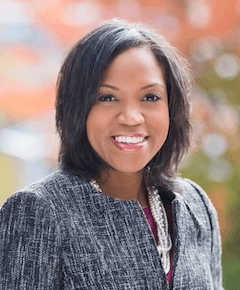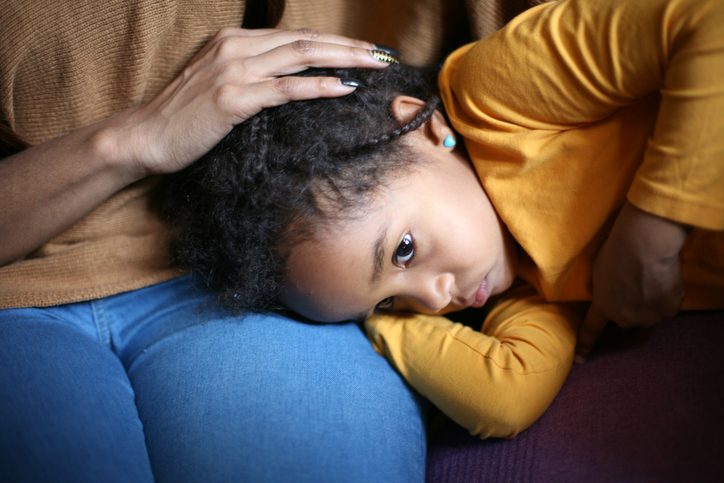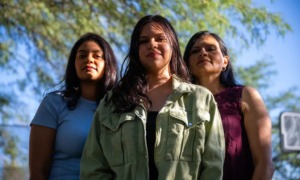WASHINGTON — Nearly 5 million Latino children run the risk of seeing their parents deported, a new study says.
At least one-quarter of Latino kids have one or both parents who are in the United States without proper authorization, according to an analysis released Wednesday by the National Research Center on Hispanic Children and Families, a Washington-based nonprofit group.

“As the nation continues to engage in crucial discourse over the future of immigration policy, it is important to acknowledge the extent to which these policies will affect the well-being of the vast number of children whose parents may be at risk of deportation,” the center said in announcing its findings. “This kind of uncertainty, stress and trauma can threaten children’s well-being affecting their brain development, physical health and more.”
Crunching numbers from the Department of Homeland Security and Pew Research Center, center analysts estimated that Latinos accounted for nearly 87 percent of the 5.5 million American kids whose parents are at risk of deportation.
Center researchers didn’t mention President Donald Trump by name, but did make several pointed references to the anti-immigrant movement that has strengthened as Trump has risen to power.

Lindsay Harris
But anti-immigrant sentiment — while it certainly doesn’t help — also doesn’t fully account for the structural problems in the nation’s immigration bureaucracy, said Lindsay M. Harris, an assistant law professor who co-runs the University of the District of Columbia’s immigration and human rights clinic. There are nearly 600,000 cases mired in the immigration courts’ backlog, she said.
“This means that individuals put into removal proceedings today may not have a final result in their case until maybe more than four years from now, or longer,” she said. “During this long wait, people are going to have families, U.S. citizen children will be born. So, this is not a problem that is going away anytime soon.”
Without system changes, “mixed-status families will continue to exist and likely rise in number,” Harris said. “It is very important to think about how children are affected by the undocumented status of their parents. This is even more critical in an era of some anti-immigrant sentiment, to which children are routinely exposed. In speaking to teachers with immigrant children in their classroom, the fear and uncertainty that these children are experiencing in the current political climate is palpable.”

Guadalupe Fernandez
Guadalupe Fernandez is the children’s legal advocate in the Houston office of the Tahirih Justice Center, a national nonprofit immigrant rights group. She says advocates have to get outside their own offices and coordinate with other child service providers — school counselors, lawyers, judges, welfare officials. Her group has put together a “Know Your Rights” presentation for school kids. She and her group also urge families to have the difficult conversations about their immigration status and to draw up contingency plans if the unthinkable happens.
“There’s a lot of panic and we need to be careful not to project our own fears onto our clients,” Fernandez said. But “the children are already thinking about this. The families are already in a state of fear. It’s a matter of pulling them into that conversation. It’s a conversation that has to happen.”
Some advocates read Wednesday’s report as a renewed call for action.

Michelle Thomas
“It’s so important for legal and mental health professionals, as well as clergy, [to] create strong support systems for children at risk,” said Michelle C. Thomas, a veteran family lawyer in the Washington area. “They need to have somewhere to go to express their concerns and fears that provides them a sense of security in these uncertain times. Legal professionals must increase access to justice for undocumented immigrants through hotlines and the provision of pro bono immigration services to ensure everyone’s civil rights are protected, including those of immigrants.”
































